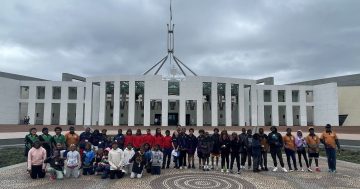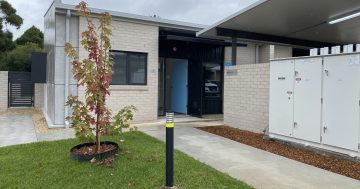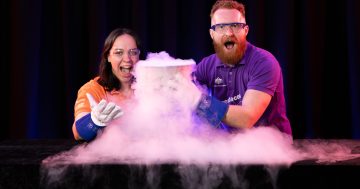
From left, Rubik3 director Guy Earnshaw and Finance Manager Natasha O’Connor, IRP patron Professor Marcia Langton AM and IRP CEO Dan Billing. Photos: George Tsotsos.
Former public servant Dan Billing started out in 2012 with $300 in seed funding and a good idea: if you could get indigenous kids reading more, you would improve their education and life outcomes immeasurably.
The Indigenous Reading Project was born, Professor Marcia Langton tweeted her support and found herself the patron in short order. This week, both were on hand to accept a giant cheque for $20,000 from Canberra consultancy firm Rubik3, who have put their money where their mouth is in terms of corporate social responsibility.

The IRP has now reached over 1000 children, identifying the kids who need the most help and have the best prospects of benefiting from it. Students are given e-readers and access to a huge library of e-books, and their progress is monitored with the help of schools and families. If they show improvement, they keep the devices. If not, the devices go back just like an overdue library book.
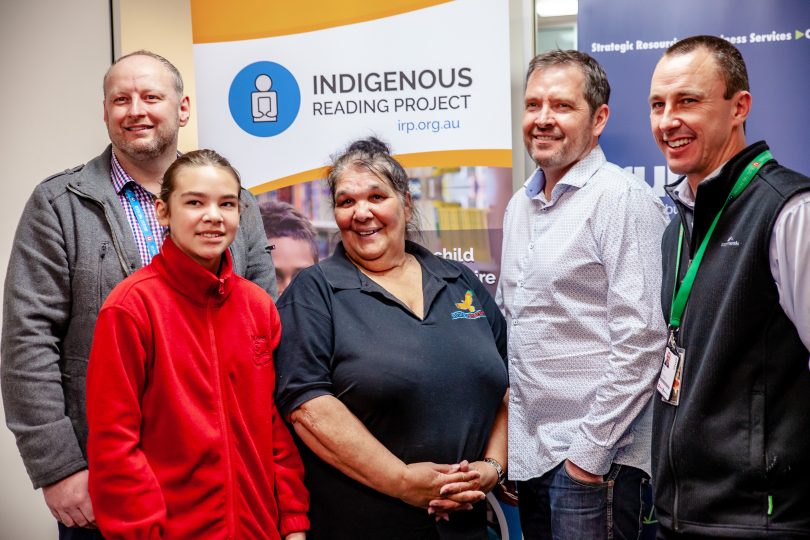
Dan Billing says that in 2015, 95 per cent of all non-Indigenous students met the national minimum standards for reading. But only 31 per cent of Indigenous kids from very remote communities reached this basic level of achievement.
His motivation is, he says, personal. “I have a couple of kids myself. They’ve had a privileged upbringing here in Canberra, and I grew up myself in a small bush community in Queensland. A lot of my indigenous mates that I grew up with missed out on the things we all deserve.
“I know that there are kids out there with a whole lot of capability that can do a whole lot better with just a bit more smart, considered thinking.”
We’re LIVE from Rubik3’s office in Braddon for a very special morning tea where Professor Marcia Langton, Patron of the Indigenous Reading Project, will accept a $20,000 donation to continue their work to help improve the reading ability of Aboriginal and Torres Strait Islander students. http://ow.ly/uZYv30lFBQM
Posted by The RiotACT on Sunday, September 2, 2018
And it’s working: IRP students are showing a 130 per cent improvement in reading time and a 30 per cent increase in fluency and comprehension.
“One of the different things about us is that we don’t ask governments for money, we try to partner with the business community. One of the great unmet areas of potential in the Australian economy is corporate sector involvement in tackling big social problems, and I don’t just mean that in terms of cash, but relationships, skills and the passion people can bring to their organisations and community”, Billing says.
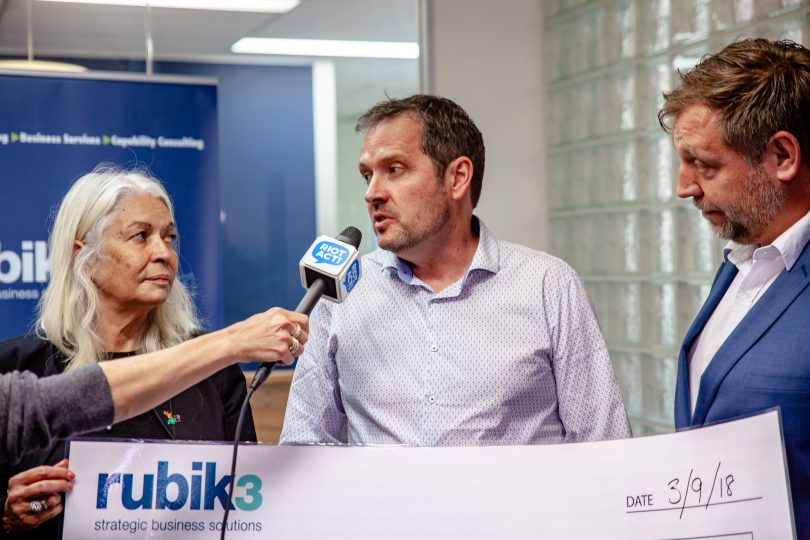
Rubik3 director Guy Earnshaw said that corporate social responsibility mattered to his firm from day one: “It wasn’t a matter of waiting until we were a success to help,” he says of the ongoing relationship with the IRP. “We wanted to be involved from the very beginning.”
Reading was power when indigenous leader and academic Marcia Langton was a child. “I remember sitting up a tree, with my nose glued in a book,” she says. “It was a way to escape the bad things in my life but it also opened up the world to me.”
“There’s an interesting statistic that indigenous people with a higher education have closed the gap,” she says, pointing to the growing number of prize-winning indigenous authors and poets and film-makers who are telling nationally important stories.

Dan Billing is optimistic about the future. “If we can keep doing what we’re doing, there’s real potential to scale up. There are 100,000 indigenous youngsters right now across the country who are effectively locked out of the economy. We want to make a real dent in that number.
“Government has a role to play in addressing social disadvantage, but we all need to take responsibility.”















